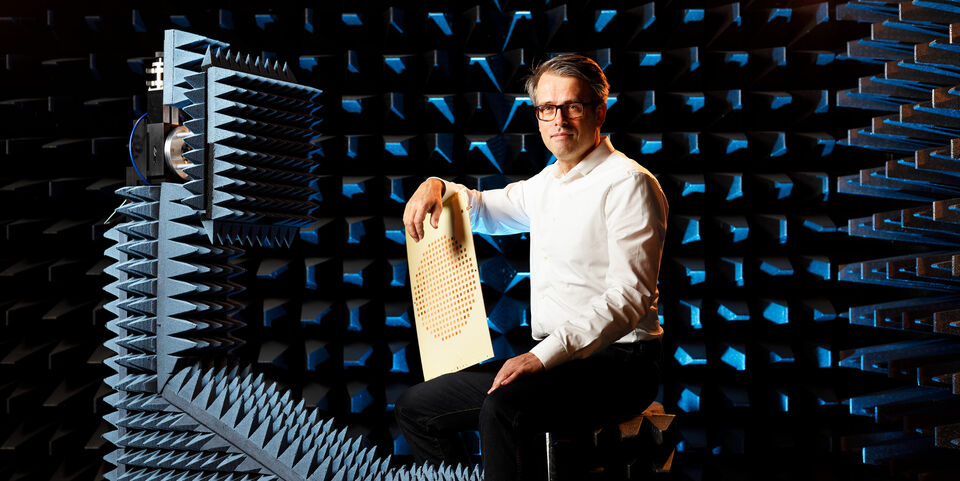“Creating MOOCs takes hard work, but it’s worth the effort”
Dean of Electrical Engineering Bart Smolders and his small team spent eighteen months working on a MicroMaster, distributed over three Massive Open Online Courses (MOOCs). The first part was launched on Coursera last Monday, and approximately two hundred participants signed up already. Good for TU/e’s brand awareness and for recruiting talent, Smolders says. It took him “some effort,” but he hopes that it will inspire other scientists, both within his department and university wide.
Together with part-time professor Domine Leenaerts, who works at NXP Semiconductors, and assistant professor Ulf Johannsen, Smolders spent eighteen months working on a MOOC titled ‘Microwave Engineering and Antennas'. It’s the first in a three-part series of MicroMasters in the field of wireless technology. The plan is to make the remaining two parts available on digital learning platform Coursera before the summer holidays. MicroMasters are online courses aimed at, for example, students who would like to learn more about certain Master’s programs. In addition, these courses can earn them some extra credits that count toward a portion of the credits of an actual Master’s program. Students who’ve successfully completed all three parts of the MicroMaster will have already gained 15 credits once they start with a Master’s program in Eindhoven.
Brand awareness
Smolders had been thinking about making MOOCs for years, but he saw that there wasn’t much enthusiasm within his department. “As long as four years ago, I invited professor Bert Blocken of Built Environment to explain to our staff how he went about it at his department. [Cursor published a background story about this on Friday, October 30, ed.] That didn’t have the desired outcome. People often say they don’t have the time for it. That’s true, people are busy. However, I said to myself, if I as dean show that I can make a MOOC, it might convince others. Not just within my department, but university wide as well.”
Still, creating the MOOC was a “momentous task,” he admits. “It took me hard work, but it was worth it,” Smolders says from his workplace at home. That’s why he is very pleased that the MOOC, which has been online for only five days, attracted almost two hundred people already. “We wanted to keep it somewhat low profile at first and focus primarily on our own Master’s students, but people showed an interest in it from day one. That’s also because we deal with ‘sexy’ topics in part one, such as 5G and its successor 6G. In addition, Domine Leenaerts brings his first-hand industry expertise.”
The most important advantage, Smolders believes, is that it raises the university’s brand awareness. “That needs to help us attract talent from abroad for a Master’s programs or a PhD position.” Also, all the efforts have already paid off in part: Smolders was supposed to teach the course that is currently being discussed in the first MOOC during the second quartile. “I now refer my students to that, and I plan two hours every week during which they can asks questions about the course material., But as of yet, those students aren’t among the two hundred people who have already signed up.”
Cliffhanger
Smolders has some tips and notes for those who have now become interested in creating their own MOOCs. “First off, don’t think that a MOOC has anything to do with combining a series of lectures you recorded on the campus. You need to spend a lot of time working on web lectures, they shouldn’t be too long, and students also need to be able to test their knowledge. That is why we interspersed our MOOC with several quizzes. In addition, our participants work on a design challenge, something that runs through all modules. That creates something of a cliffhanger, you should need and want to continue with it.”
BOOST
Smolders and his colleagues received financial support from BOOST, TU/e’s program aimed to stimulate innovation in education. “That allowed us to pay for the recording studio and to hire student assistants who helped us with, among other things, video editing and entering the quizzes.”
Incidentally, a three-part MOOC series on photonics is currently also under construction, to be developed by Electrical Engineering in collaboration with the department of Applied Physics. “With a total of six MOOCs, we’ll have something quite impressive to put on display in Coursera’s shop-window.”


Discussion